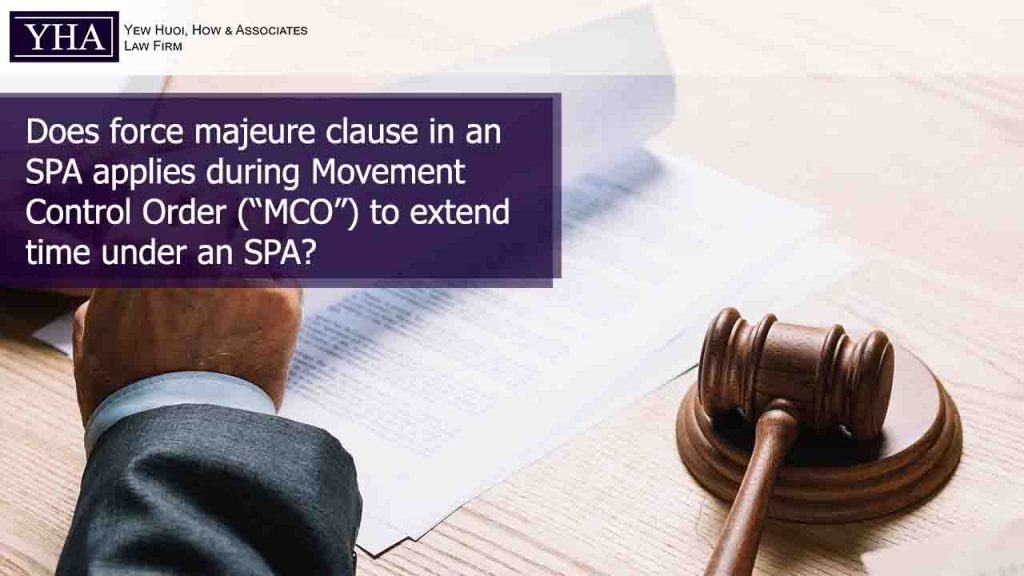Does force majeure clause in an SPA applies during Movement Control Order (“MCO”) to extend time under an SPA?
Most sale and purchase agreements (“SPA”) (including Schedule H and G SPA) and proforma
sale form do not have force majeure clause which allow termination, non-performance or delay of performance of the terms by reason of acts of God, war, flood, fire, epidemics etc.
In any event, the existence of a force majeure clause in a developer’s SPA (which has to comply with Schedule H or G of the Housing Development (Control & Licensing) Regulations 1989 (“HDR 1989”) was previously held by the Federal Court to be void. In short, an epidemic does not relieve the developer’s duty to complete the construction of building within the stipulated timeframe.
However, a sub-sale SPA may contain a force majeure clause.
Sample force majeure clause
“No party shall be liable to the other for any failure to fulfill any terms of the agreement if such fulfillment is delayed, hindered or prevented by force majuere including but not limited to Acts of God strikes lockouts riots civil commotion epidemics acts of war or failure to obtain any necessary approval of any local or other appropriate authority or any other circumstances of whatsoever nature beyond the control of the party”.
If there is such clause in your SPA, you may rely on Covid-19 pandemic and MCO to avoid the application of the terms in an SPA; including but not limited to extension of time and non-performance during this period.

